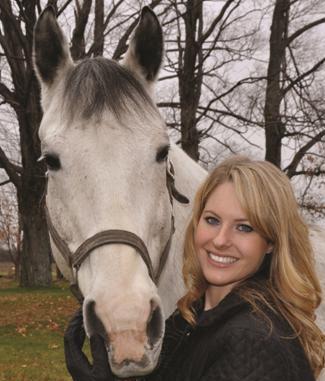A desert danger

COLIC IS a four-letter word to any horse owner, and just the hint of it can send even the most levelheaded person into high stress.
The term is sometimes confusing, as it simply refers to abdominal pain caused by a variety of disorders ranging from gas distension to displacements or volvulus (twists) of the large or small intestines. Any horse that is off feed, pawing, kicking or licking the stomach, not passing normal amounts of manure, lying down frequently, or rolling may be displaying signs of colic.
The vast majority of colics are caused by a buildup of gas in the colon caused by changes in hay or feed, not drinking enough water, or even changes in weather. These simple colics are usually resolved quickly by administering Banamine (flunixin meglumine, a painkiller) and sometimes veterinary care such as sedation and pumping fluids and oil into the horse’s stomach.
Another common colic, especially in New Mexico, is sand colic. Sand builds up in the large intestine and causes irritation of the gut lining, weighing down the intestine and slowing normal contractions and movements of the gut. This can lead to impactions or blockages.
Sand colic can resolve easily, but sometimes will lead to a serious colic requiring costly surgery ($8,000 to more than $10,000) to remove the sand.
Horses ingest sand when fed on the ground or by grazing in sandy soils. Even when they are fed from buckets or feed racks, horses will eat spilled feed off the ground, ingesting sand.
Diagnosis of sand colic can be tricky. A veterinarian can listen to a horse’s gut with a stethoscope, and sometimes hear the characteristic sand sound. However, not hearing it does not rule out sand in the gut.
A horse owner can check for sand colic by collecting some manure in a clear plastic bag or glove, adding water, and hanging the bag up. Sand will accumulate at the bottom of the bag or fingers of the glove if present in the manure. Again, the absence of sand does not completely rule out the problem.
The best way to prevent sand colic in your horse is to feed psyllium supplements, which swell in the intestines and help move sand out of the gut. A good regimen is to add psyllium to the horse’s feed every day for one week each month. Adding mineral oil to the feed has been shown to have similar benefits.
Of course, you can prevent the problem at the source by feeding only in enclosed matted stalls, and not allowing your horse to graze on sandy soils.
Dr. Lora Howell of Meddleton Equine Clinic is a graduate of Cornell University and trained at Manor Equine Hospital in Maryland and the American School of Equine Dentistry. Reach her at drhowell@meddletonequine.com.
